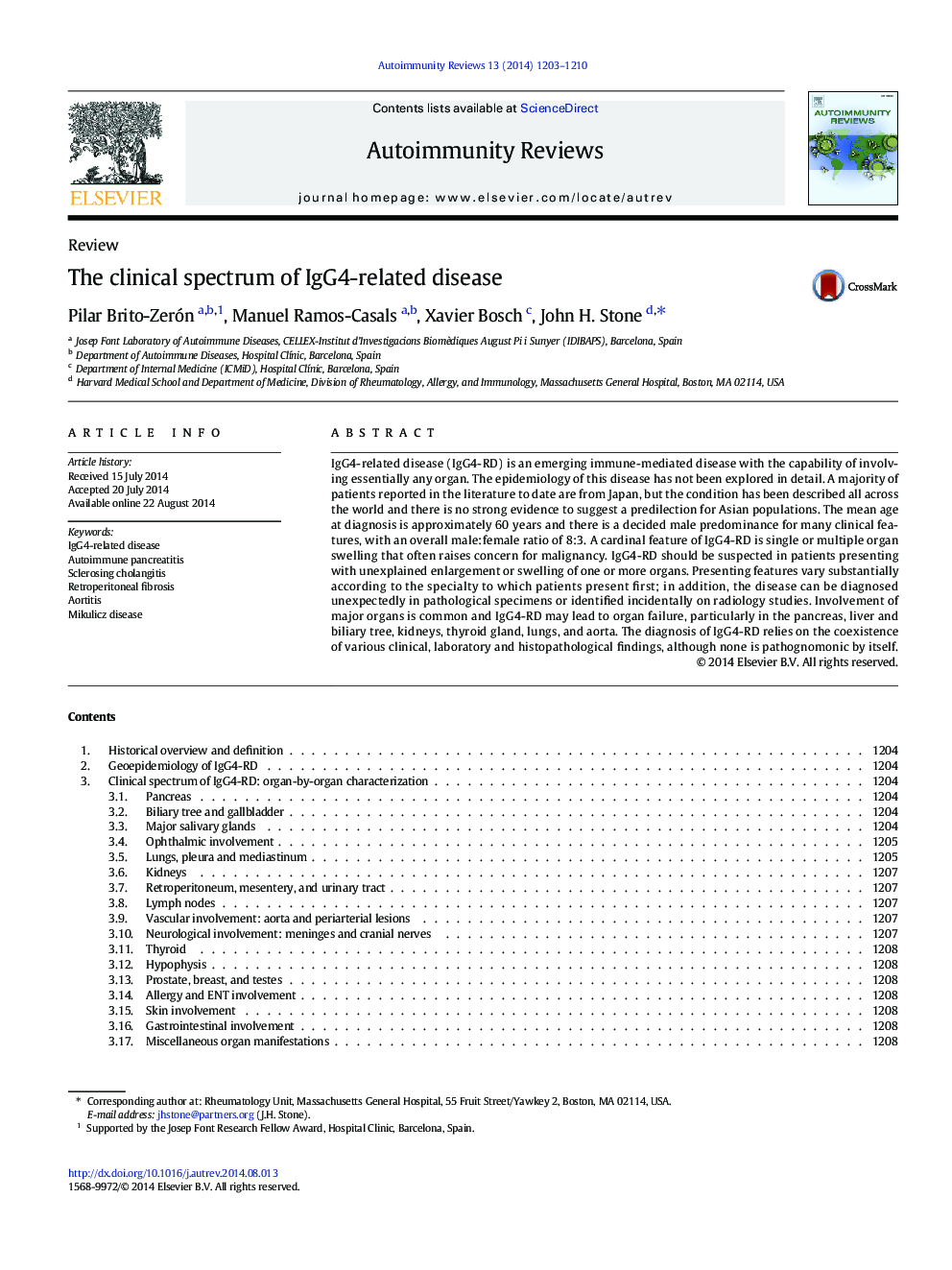| Article ID | Journal | Published Year | Pages | File Type |
|---|---|---|---|---|
| 3341460 | Autoimmunity Reviews | 2014 | 8 Pages |
IgG4-related disease (IgG4-RD) is an emerging immune-mediated disease with the capability of involving essentially any organ. The epidemiology of this disease has not been explored in detail. A majority of patients reported in the literature to date are from Japan, but the condition has been described all across the world and there is no strong evidence to suggest a predilection for Asian populations. The mean age at diagnosis is approximately 60 years and there is a decided male predominance for many clinical features, with an overall male:female ratio of 8:3. A cardinal feature of IgG4-RD is single or multiple organ swelling that often raises concern for malignancy. IgG4-RD should be suspected in patients presenting with unexplained enlargement or swelling of one or more organs. Presenting features vary substantially according to the specialty to which patients present first; in addition, the disease can be diagnosed unexpectedly in pathological specimens or identified incidentally on radiology studies. Involvement of major organs is common and IgG4-RD may lead to organ failure, particularly in the pancreas, liver and biliary tree, kidneys, thyroid gland, lungs, and aorta. The diagnosis of IgG4-RD relies on the coexistence of various clinical, laboratory and histopathological findings, although none is pathognomonic by itself.
